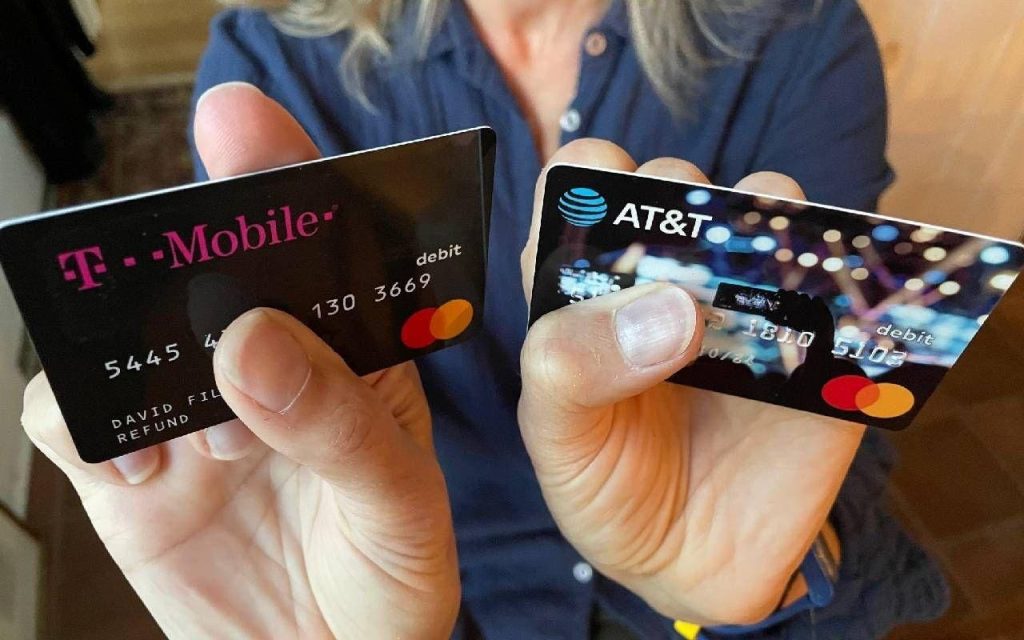The proliferation of refund debit cards, ostensibly designed to streamline the refund process for businesses, has inadvertently created a labyrinthine system that often leaves consumers frustrated and out of pocket. Instead of receiving a straightforward refund to their original payment method, customers are increasingly presented with prepaid cards laden with activation requirements, usage restrictions, and hidden fees. While these cards are marketed as a convenient alternative to checks, the reality is often far from seamless. The experience of trying to spend these seemingly simple refunds can quickly devolve into a series of failed transactions, declined cards, and ultimately, the realization that retrieving your own money requires a significant investment of time and effort. This convoluted process raises concerns about whether these cards are truly designed for customer convenience or primarily serve as a profit-generating mechanism for the companies involved.
The underlying mechanics of these refund card programs reveal a complex web of third-party intermediaries. Businesses, seeking to reduce the administrative burden and cost associated with processing refunds, often outsource this function to specialized financial service companies. These intermediaries, acting as middlemen, essentially purchase the outstanding refunds from the original businesses at a discounted rate. They then issue prepaid debit cards to customers, bearing the original company’s branding, while pocketing the difference between the purchased refund amount and the actual amount owed to the customer. This model is predicated on the assumption, often accurate, that a significant portion of card recipients will fail to redeem the full value of the card, allowing the intermediary to retain the unspent balance as profit. This system, reminiscent of debt collection practices, raises ethical questions about leveraging consumer inertia for financial gain.
The challenges associated with using refund debit cards extend beyond mere inconvenience. Many consumers encounter technical difficulties activating the cards, navigating confusing websites, or deciphering complex instructions. Furthermore, these cards are often subject to expiration dates and inactivity fees, effectively penalizing customers for not spending their own money quickly enough. Even if successfully activated, these cards can be declined at certain retailers due to the perception of higher fraud risk associated with prepaid cards. The lack of readily accessible customer service for these cards exacerbates the problem, leaving consumers stranded with limited recourse when encountering issues. This combination of technical hurdles, hidden fees, and limited customer support creates a frustrating and often costly experience for those seeking to access their rightful refunds.
The practice of issuing refund debit cards has drawn criticism from consumer advocacy groups, who argue that it disproportionately impacts vulnerable populations who may lack the technological literacy or resources to navigate the complexities of these systems. The opaque nature of these programs, coupled with the potential for hidden fees and expiration dates, can create financial barriers for individuals who are already struggling economically. While some companies claim that these cards offer a more efficient and secure method of refund disbursement, the anecdotal evidence suggests otherwise. The high rate of unspent balances and the prevalence of consumer complaints point to a systemic flaw in a process designed to return money to its rightful owners.
There are alternatives to this convoluted refund process. Companies could offer direct refunds to the original payment method, eliminating the need for intermediary cards and associated fees. While some companies do provide this option, it often requires customers to navigate complex phone menus, endure lengthy hold times, or provide extensive personal information. Even when given the option to choose a check or direct deposit, the processes to do so are often inconvenient and time-consuming. The disparity between the stated intention of providing convenient refunds and the actual customer experience suggests a need for greater transparency and regulatory oversight. Consumers deserve clear and accessible options for receiving their refunds without being subjected to unnecessary hurdles or hidden costs.
In the absence of widespread regulatory changes, consumers are left to navigate this challenging landscape on their own. Experts recommend transferring the full balance of the refund card to a personal bank account or a trusted digital payment platform as soon as possible. This proactive approach minimizes the risk of incurring fees or losing access to the funds due to expiration dates. Additionally, consumers should diligently document any issues encountered with these cards and file complaints with relevant consumer protection agencies. By raising awareness and holding companies accountable, consumers can collectively push for more equitable and transparent refund practices. The goal is a system where refunds are truly refunds, not a convoluted pathway to enriching third-party intermediaries at the expense of consumers.

